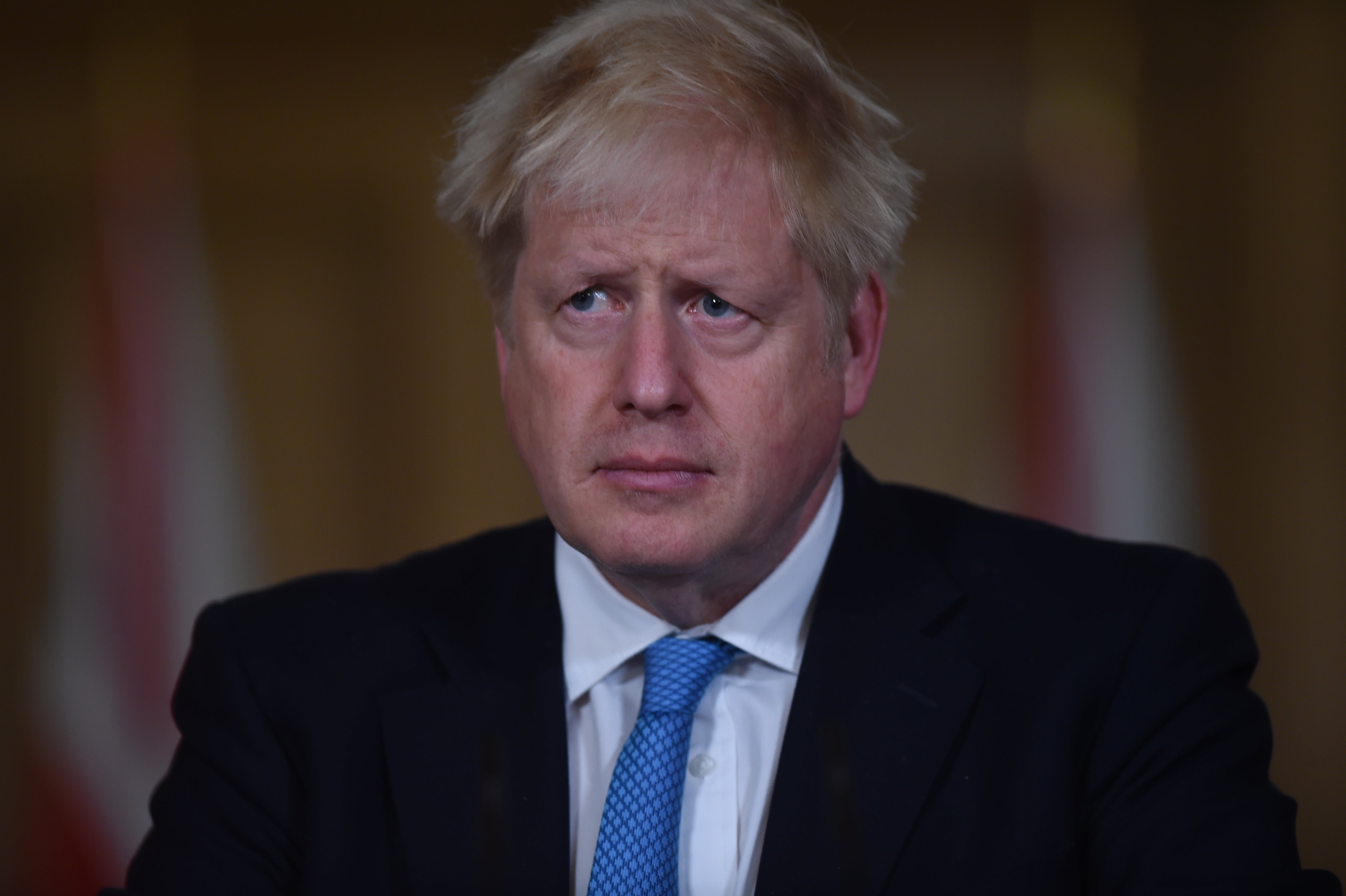Public would blame Boris Johnson for collapse of Brexit talks, poll finds
Talks moving back to Brussels after an intense week in London

A majority of the British public would blame Boris Johnson if Brexit talks fail to reach a deal, a new poll has found.
The survey piles pressure on the government to negotiate an agreement, as last-ditch talks are set to move to Brussels after an intense week in London.
Sixty-five per cent of the public now believe the government has "generally failed" in its negotiating objectives, the new YouGov poll says – while 57 per cent say UK side would be to blame for a no-deal.
It comes as the head of the UK's leading employers' organisation warned that the British economy has been left in "suspended animation" while the government leaves striking a Brexit deal to the last minute.
The president of the European Council meanwhile said the extended negotiations were entering their most "difficult" stage yet, and gave little indication of how long they might take.
Charles Michel said the EU would assess progress "in the next days or in the next weeks", stating: “We all know that in all negotiations, the last and final decisions are the most difficult. Will we get a deal? I don’t know".
Brussels and London have both privately resolved to avoid giving a running commentary on talks - an informal arrangement referred to as a "tunnel" in EU jargon. The aim of the policy is to give negotiators space to make decisions without having to grandstand for observers outside the room.
Members states are keeping a close eye on talks, responsibly for which they have deleted to the European Commission and its chief negotiator Michel Barnier.
Ireland's foreign minister Simon Coveney, who has played a leading role since the beginning of negotiations, said talks were in the "very serious zone" with a realistic timetable of 10 to 14 day.
Mr Coveney, who was speaking to the Irish Farmers' Journal, added: "We're likely to get a deal but it won't be easy."
Back in London CBI boss Dame Carolyn told The Guardian: “It [Brexit] has had a momentum of its own.
"It has been almost a perfect storm. The economy has gone into suspended animation while we resolve this seismic issue. I hope we can have a resolution so we can move on.”
She also rejected government suggestions that the UK would prosper under a no-deal, stating that an agreement would be "enormously better" than none.
Boris Johnson last week feigned a walk-out from talks, saying there was "no point" in EU chief negotiator Michel Barnier coming for more discussions. Talks resumed after half a week of back-and-forth phone conversations and promises of "intensive" discussions.
EU officials believe negotiators have the start of November to get an agreement together at the last minute, after which it would become very difficult to implement before the end of they year. Britain's Brexit transition period elapses on 31 December, which will see the UK leave the EU's single market and customs union. Talks are about finding a replacement for the current arrangement, though whatever is negotiated is expected to end frictionless trade between the two blocs.
Sticking points in talks so far have been on the extent to which the UK will align with EU regulations, especially on state aid, and fishing.
Naomi Smith, chief executive of pro-EU campaign group Best for Britain, which commissioned the new poll showing the prime minister would get the blame for a no-deal, said the public wanted a deal signed "as soon as possible".
“This poll shows that the British public understand the damage that would be inflicted by leaving the transition period without an agreement and would not forgive Boris Johnson for failing to deliver on his election promise of an ‘oven-ready’ trade deal," she said.
"Voters have had enough of the posturing and just want the Prime Minister to get these negotiations moving in the right direction. That includes Conservative and Leave voters, and it’s a sentiment replicated across every region in the UK."
Join our commenting forum
Join thought-provoking conversations, follow other Independent readers and see their replies
Comments
Bookmark popover
Removed from bookmarks